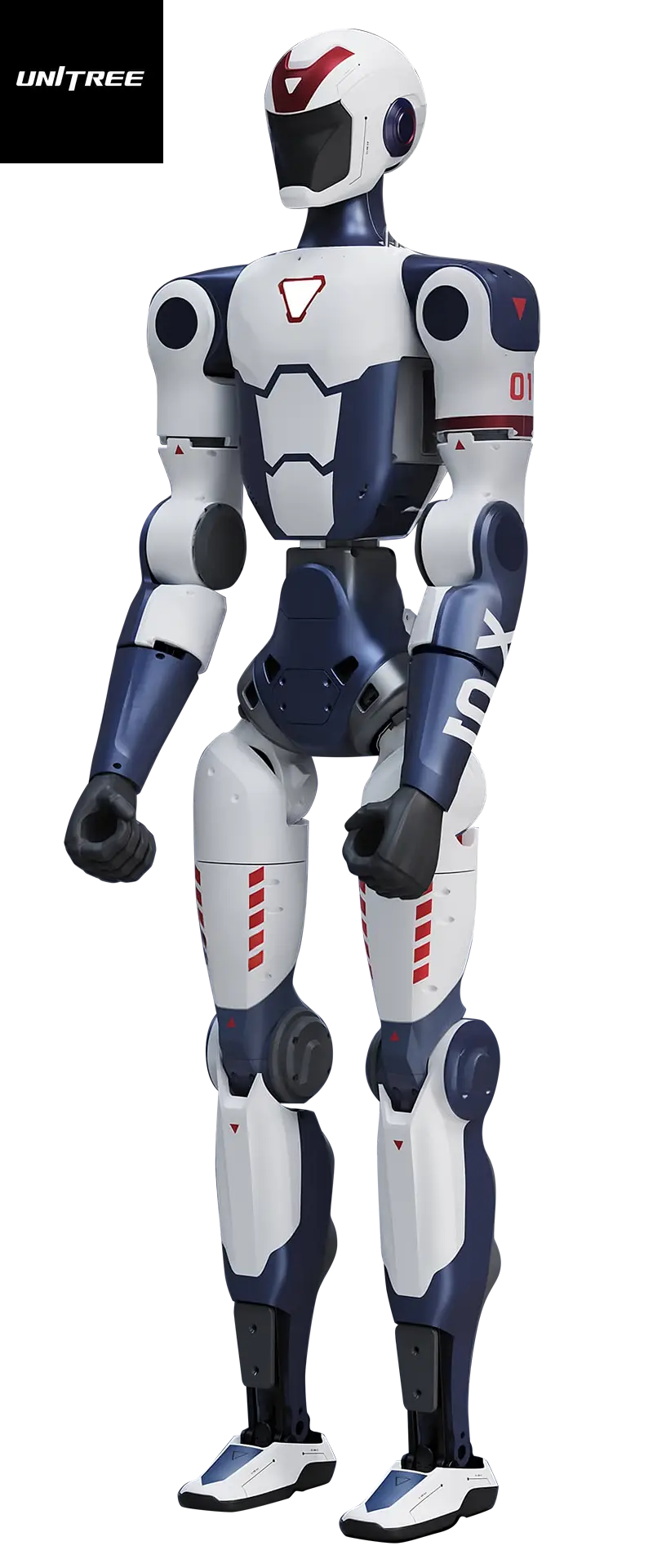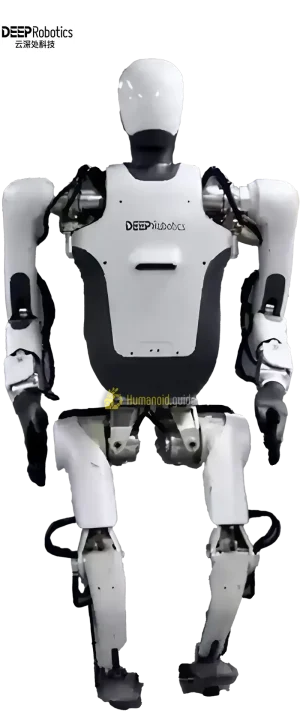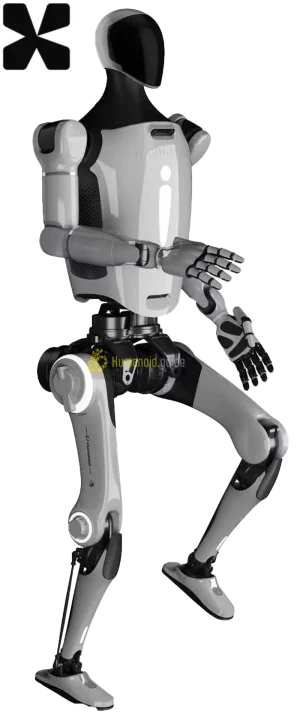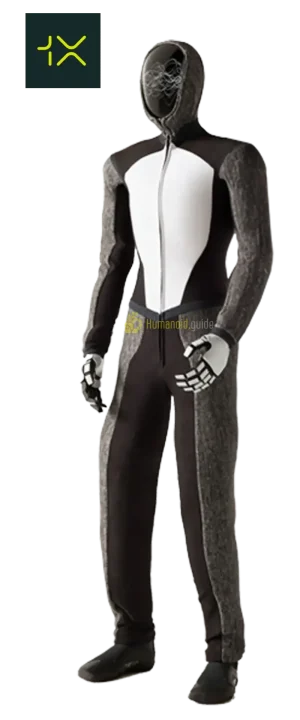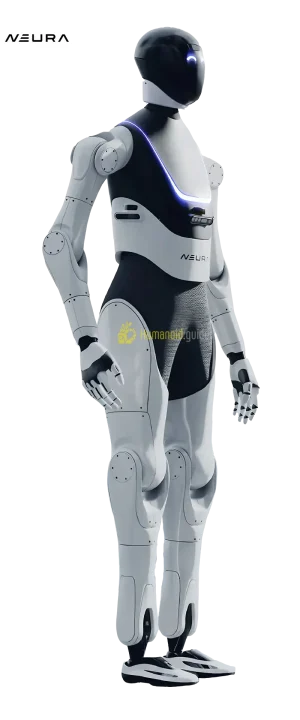Unitree R1

$ 5 900

Unitree’s new R1 is a 1.22 m‑tall, 25 kg humanoid priced from US $5 900 that can run, cartwheel and recover falls, bringing full‑body robotics into an affordable developer‑friendly form factor.
Skill Score
 6
6Specifications and details:
| Availability | In production |
|---|---|
| Nationality | China |
| Website | https://www.unitree.com/ |
| Degrees of freedom, overall | 26 |
| Degrees of freedom, hands | N/A |
| Height [cm] | 122 |
| Manipulation performance | 3 |
| Navigation performance | 3 |
| Max speed (km/h) | N/A |
| Strength [kg] | 10 |
| Weight [kg] | 25 |
| Runtime pr charge (hours) | N/A |
| Safe with humans | Not specified |
| CPU/GPU | On‑board 8‑core CPU + GPU |
| Ingress protection | Not specified |
| Camera resolution | Stereo binocular camera (220 ° FOV on SV1‑25 module) |
| Connectivity | Bluetooth, Wi‑Fi |
| Operating system | Unitree typically ships a Linux‑based SDK |
| LLM integration | multimodal large language model for speech & image recognition |
| Latency glass to action | N/A |
| Motor tech | Unitree in‑house smart actuators (same lineage as H1/G1); details pending |
| Gear tech | Unitree has previously used quasi‑direct drives without harmonic reducers |
| Main structural material | composite shell over alloy frame |
| Number of fingers | 10 |
| Main market | hobbyists, individual developer, research labs |
| H.G skill score | N/A |
| Verified | Not verified |
| Walking Speed [km/h] | 9 |
| Shipping Size | N/A |
| Color | N/A |
| Manufacturer | Unitree Robotics |
Description
Unveiled in July 2025, the R1 undercuts every full‑size competitor at just 39 999 CNY (≈ $5 900) for the base kit, with a “pro” configuration at around $16 000. The low price targets universities, hobbyists and early consumer adopters who were priced out of Unitree’s $16 k G1 and $90 k H1.
2026 Humanoid Robot Market Report
160 pages of exclusive insight from global robotics experts – uncover funding trends, technology challenges, leading manufacturers, supply chain shifts, and surveys and forecasts on future humanoid applications.

Featuring insights from
Aaron Saunders, Former CTO of
Boston Dynamics,
now Google DeepMind

2026 Humanoid Robot Market Report
160 pages of exclusive insight from global robotics experts – uncover funding trends, technology challenges, leading manufacturers, supply chain shifts, and surveys and forecasts on future humanoid applications.
With 26 smart joints, twin six‑axis IMUs and proprietary high‑torque actuators, R1 demonstrates downhill sprints, cartwheels, handstands and quick push‑recovery in launch videos. The company markets it as “born for sport,” highlighting expressive lower‑body dynamics over heavy payload work.
Inside a backpack‑style module sits an 8‑core CPU + GPU computer that runs Unitree’s UnifoLM multimodal large‑language model, enabling voice/image command, gesture recognition and local reinforcement‑learning policies without cloud latency. Developers get a Linux‑based SDK and ROS 2 interfaces.

Get the Right Humanoid
Our Connect Service gives you a fixed-fee, unbiased shortcut to finding, testing, and choosing the right humanoid robot:
A hot‑swappable battery yields roughly one hour of mixed activity, while the Child‑size 122 cm frame keeps total mass to 25 kg—light enough for a single person to carry but sturdy enough for live demos and interactive research. Unitree stresses safe‑distance operation and plans to iterate specs as feedback arrives ahead of large‑scale production.

